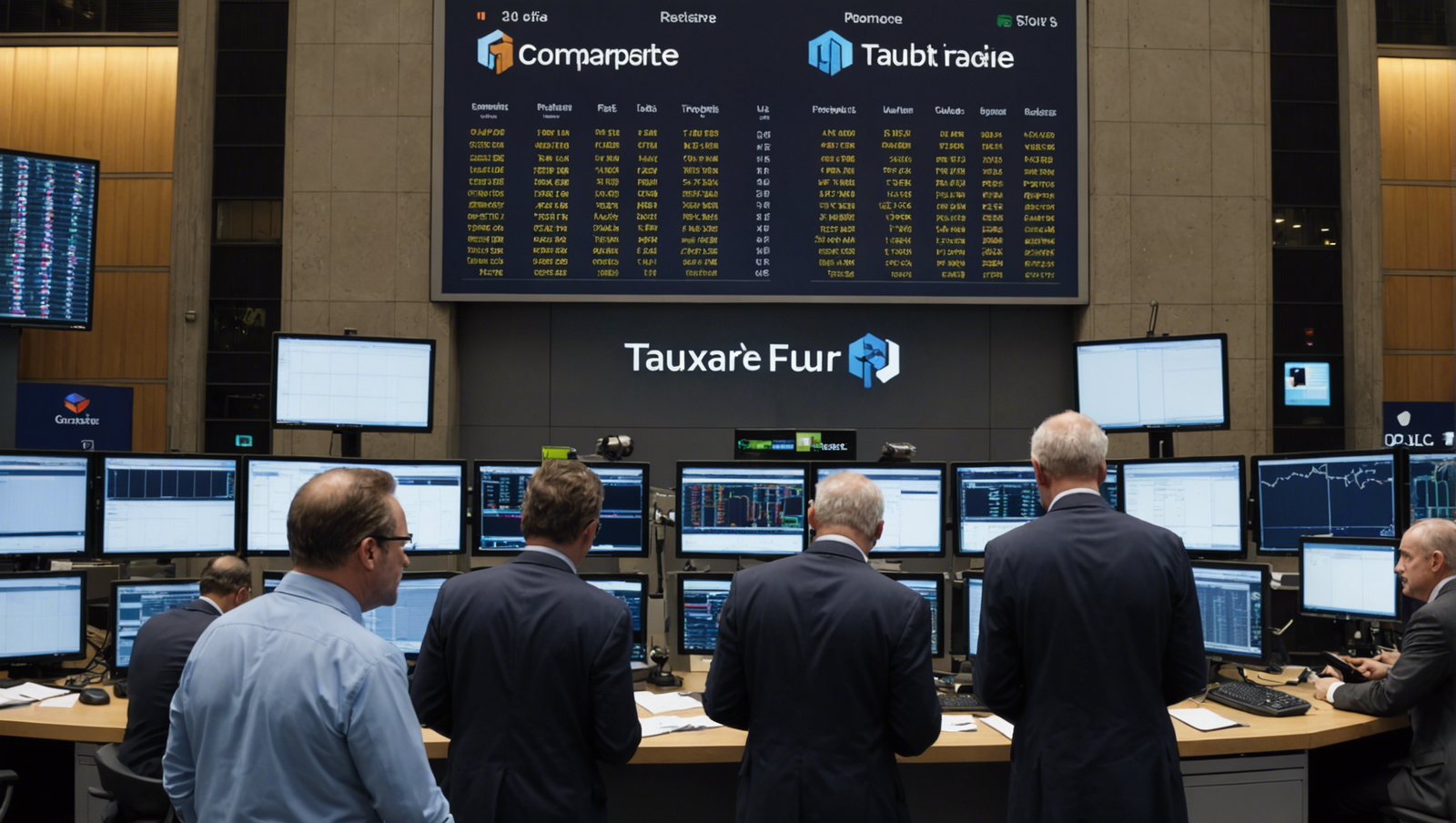In the intensive world of trading, working with a Proprietary Trading Firm – or Prop Firm – can make all the difference in your career. Set yourself the best chance of success and discover in this article how the success rates of traders belonging to these specialized firms surpass those of the rest of the market.
Comparative analysis of success rates between a Prop Firm and other traders

Introduction to Prop Firm and Independent Trading
Trading, a very common term today, and which is full of many players. Among these actors, we have Prop Firms and independent traders. Each has its own characteristics, advantages and disadvantages. The financial world is evolving at lightning speed, it is becoming more and more competitive, thus requiring constant updating of skills. This is why many traders want to integrate Prop Firm serious efforts to improve their knowledge and achieve their performance objectives.
What is a Prop Firm?
A Proprietary Trading Firm (or Prop Firm) is an investment entity where traders use the company’s money to carry out trading operations. Prop trading companies typically apply selective recruiting, strong training, and often include experienced traders willing to share their knowledge. For more details on Prop Firm, this guide gives a comprehensive view of the subject.
Success rate of a Prop Firm
The success rates of Prop Firm are generally higher than those of independent traders. Trading is a high-pressure activity requiring maximum concentration, in-depth and rapid analysis and strong decision-making ability. Prop Firms, thanks to their professional framework and qualified human resources, offer these essential elements, which generally increases the chances of successful trades.
Independent Trading
Independent trading, on the other hand, is generally a solo operation. Independent traders perform their own analysis, manage their own capital and make their own trading decisions. This, however, can be a double-edged sword. If the trader has a strong background in finance and has good technical analysis skills, he could be successful. However, this can also be a disadvantage if the trader lacks experience or the support of a team. For a more detailed overview of independent trading vs. Prop Trading, do not hesitate to consult this link.
Comparison of success rates
Now, let’s talk about the success rate. Win rate is generally measured by the percentage of trades that generate a positive profit. As mentioned above, this rate tends to be higher in a Prop Firm than with an independent trader. This is due to the better training, infrastructure and environment that a Prop Firm offers. Additionally, sharing knowledge and skills within a Prop Firm team also contributes to a higher success rate.
In conclusion, when comparing the success rate of a Prop Firm with that of other traders, it clearly appears that Prop Firms have a higher success rate. However, this does not mean that independent trading is worthless. It remains extremely valuable for those who have the skills and experience to navigate the choppy waters of the financial markets on their own.
Understand the performance differences between a Prop Firm and other traders

Understanding the concept of Prop Firm in Trading
First, it is essential to understand the concept of a Prop Firm in trading. A Proprietary Trading Firm, or Prop Firm for short, is a proprietary trading business. Unlike other traders who trade for their own account or on behalf of clients, Prop Firm traders, known as prop traders, trade with the company’s capital.
This system offers many benefits, including access to significant liquidity, access to quality training and coaching, and the ability to share effective trading strategies with other professional traders.
Comparative analysis of the success rate: Prop Firms vs other traders
A comparative analysis of the performance of traders working within a Prop Firm compared to other traders reveals notable differences.
The success rate in a Prop Firm
The success rate of Prop Firm traders is generally higher due to several factors. First, these traders often have access to in-depth training in the art of trading. They can count on the support of experienced mentors who help them navigate the sometimes choppy waters of the financial markets.
Additionally, prop traders also have access to significant capital and sophisticated trading tools. These factors are all assets that can contribute to better trading performance.
Other traders: an often more difficult journey
In contrast, traders who do not work for a Prop Firm often face a unique set of challenges. They must develop their own trading strategies, manage their trading capital and provide continuing education without the support of a team.
Without access to adequate training and coaching, these traders may be more likely to make costly trading errors, which can reduce their success rate.
Conclusions
In conclusion, Prop Firms offer favorable conditions that can contribute to a better trading success rate. However, every trader is different, and success in trading ultimately depends on many factors, including individual skills, personal commitment and the ability to manage stress and risk.
Case study: success rate of a Prop Firm compared to other traders

Comparison of success rates between a Prop Firm and independent traders
When it comes to trading, performance is a key factor for success. By performance, we mean not only the rate of return, but also the degree of risk taken to achieve those returns. One of the common ways to evaluate this performance is through success rate analysis. In this article, we will compare the success rates of a Proprietary Firm to those of independent traders.
What is a Prop Firm?
A Prop Firm is a business that employs traders to invest its own capital. Traders at Prop Firms benefit from intensive training and significant resources that can help them succeed in this highly competitive field. Compared to independent traders who trade with their own money, traders at Prop Firms can have access to high-frequency trading, advanced risk management tools and much greater trading capital. Additionally, they benefit from the camaraderie and mentorship in the Prop Firm work environment, which can potentially increase their success rates. To obtain more information on Prop Firms, the guide “Prop Firm Challenge Guide” is a reliable source of reference.
Success rate of Prop Firms versus independent traders
On average, the success rates of a Prop Firm are generally higher than those of an independent trader. This is because Prop Firms traders are trained to adopt effective trading strategies and minimize risks. Additionally, they have access to more capital, which allows them to make bigger trades and make bigger profits.
Furthermore, independent traders face many challenges. Besides the need to have sufficient funds, they also need to master trading techniques, understand financial markets, manage emotions and avoid beginner mistakes. Lack of mentorship and support can also affect their success rate.
The role of technology in the success rate
Technology has played a key role in increasing trading success rates. The use of trading robots can make it possible to manage a large number of transactions in record time, without errors, with state-of-the-art precision. However, while trading robots can be useful, they do not replace the trader’s knowledge and expertise. Indeed, understanding the market and correctly interpreting signals are crucial to ensuring success in trading.
Ultimately, whether in a Prop Firm or as an independent trader, the key to success lies in in-depth market knowledge, precise analytical skills and astute risk management. The choice between these two options therefore depends on the profile of each trader, their objectives and their personal preferences.

